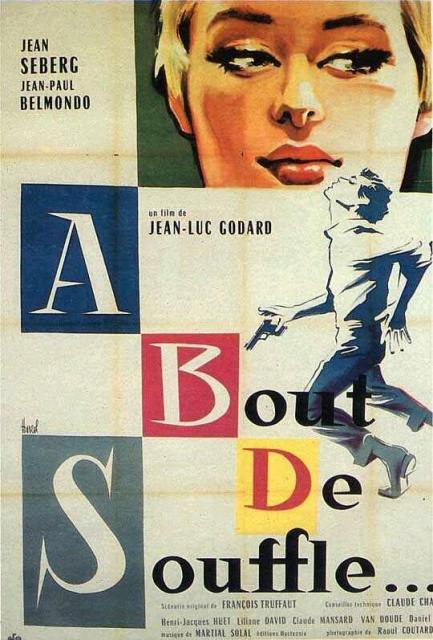
It's sort of silly to boil things down to a simple boxing-like set-up, but that's what this matter truly is. Ask just about any studio executive out in Hollywood, they will tell you that 3D is the future of movies, and while that may be true fifty years from now, at this current moment in time, it is not there yet, but what is, is Imax. Imax is the current future of movies, and the studios seem so obsessed with 3D that they aren't noticing the fantastic opportunities they have before them.
I'll be honest, I've never seen a movie in 3D that I liked. While Avatar was supposedly top-tier 3D, I've gotta say I liked the movie five times more when I saw it in 2D. Why would I intentionally want to hamper my viewing experience by wearing shaded glasses that darken the image on the screen, mute the colors, and ultimately build a wall in between me and the movie? 3D movies are supposed to make the moviegoing experience more immersive, but they fail to do just that. While the concept of 3D is great for an amusement park ride, it's only a gimmick that cannot do anything but hurt the images. And as for all of this crap about movies finally being in 3D, I think you could argue that movies have always been in 3D. A 2D movie is composed so that there is a depth of field between the separate actors and the objects onscreen. This depth of field already makes what is 3D in real life, 3D onscreen. Sure, it's not jumping out at you, but if that's what you want, go to Disney World. If you really want to know the future of the movies, it is Imax.
Imax technology has been around for decades now, but it is just now getting more popular in the mainstream movie market. We've all probably heard of Imax, or possibly even seen a movie on an Imax screen, but Imax is so much more than just a movie screen two times too big. There has never been a mainstream movie made shot entirely in the Imax format (70 mm film, where as all normal feature length films are shot on 35 mm). The bigger film stock does more than just make the image two times bigger, but it makes the image clearer, gives more clarity to what you are seeing, and makes the already discussed depth of field more noticeable.
While many 35 mm films are blown up to 70 mm to be released on the Imax screen, there is a difference between simply blowing up the print to actually shooting on the stock. An example was The Dark Knight, where 20 minutes of that movie was actually shot on Imax film stock, 70 mm. Even when watching the movie on standard-def DVD, there is a clear difference in terms of image quality between the 35 mm film scenes and the 70 mm film scenes. Imagine an entire movie shot on the format? Now, imagine watching that movie on a 53 foot tall screen with added clarity to the image quality? Immersion.
I think it's safe to assume that most people nowadays have seen one of those 45 minute or so educational films shot entirely on Imax. A good example is the Imax ed. film, Everest. Watching that movie on an Imax screen is so immersive, it's beautiful. Every camera move on that gigantic screen sweeps you away over the icy slopes. Every action is precisely seen on the climb up the icy cliffs. Or whenever a person is in the foreground, there is clear separation between him and the snowy background, and that is 3D, in which you didn't need glasses to experience; it's immersion through the legitimate Imax experience of watching a 70 mm film. While this technology is ready for use at the filmmaker's fingertips, it does have its drawbacks.
As mentioned, Imax has been around for years, and it is only just now becoming somewhat affordable, but even still, it is a highly expensive format to shoot on, and the tiniest mistake costs millions to fix. As well, the cameras used are too bulky for your average moviemaking equipment, meaning special rigs must be used to shoot with the camera. Not to mention, the noise of the Imax film running through the camera is so loud, it has been reported by many filmmakers shooting on Imax, that it is hard to capture dialogue with so much ambient noise. With that all said, the end result is five times more worth it than that of 3D.
I feel that those in the movie industry should focus all of their time and efforts on refining the Imax moviemaking process, rather than pushing for 3D, which is not ready for the mainstream, yet. If they could just make Imax cameras that were quieter, a little bit smaller, and more cost effective, perhaps an entire feature will be shot in the format rather than just part of one. An Imax ticket costs about as much as a 3D ticket, so it's not like the studios will lose money; not to mention, movie screens have to be adapted anyways if they're to show 3D movies, so why not go all out and make the screen an Imax screen (if you have the space)?
Regardless, I do think that there is a future in 3D moviemaking technology, but not now. They need to continue refining the process, for starters, by making a 3D movie that isn't dimly lit or has muted colors when viewed through the prism of the glasses, but that's just it, the glasses must be lost. Until a 3D movie is made that doesn't need the glasses in order to see the stuff flying towards your face, then 3D will not become a mainstay of moviemaking. Unfortunately, I feel that day is a long ways off. For now, Imax is the future.








